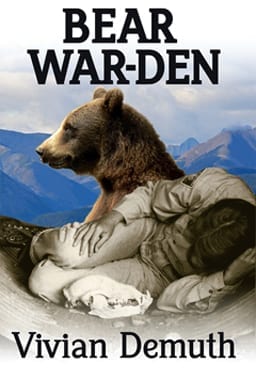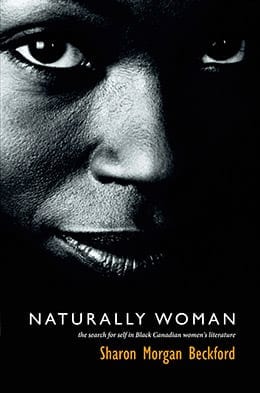A woman park warden who works in a Rocky Mountain National Park spends her time on such tasks as bear patrol, locating tourists who are lost or in other physical danger, and policing park rules. She has a particular affinity for grizzly bears, largely stemming from an experience she had in a Neolithic cave in Spain. During her work and her travels, she observes various ways in which bears are mistreated in parks, sometimes even by researchers with seemingly good intentions. While an out-of-control fire rages through the national park, the woman park warden, with two grizzly bear skulls in hand, begins a difficult and dream-like journey to the park boundary–where wild animals can seem like ghosts and trauma can strike as suddenly as lightning. One of the grizzly skulls, the one that was given to her, begins to talk to her. Told in an experimental style that mixes realism and magical realism, and interrupted by photographs and by the voice of a bear, Bear War-den explores themes of personal and ecological loss, trauma, and of women and non-human animals dealing with oppression within a male-dominated, and often paramilitary-like Parks Management system.
Vivian Demuth is the author of a previous ecological novel, Eyes of the Forest (Smoky Peace Press, 2007), and a poetry book, Fire Watcher (Guernica Editions, 2013). Her fiction and poetry have been published in journals and anthologies in Canada, the United States, Mexico, and Europe, and she has read her short stories and poetry on cbc radio, both provincially and nationally. She lives in Hinton, Alberta.
The last thing my mother had said was, “Don’t forget to breathe, up there. That alpine air is as thin as a negligee and the wind can smother you if you’re not careful.” Ever since she started reading about Buddhist meditation, breathing had become my mother’s favourite word.
My mother had not wanted me to go up to the bear cave near the monastery at Mont Serrat in Spain. She could only go so far. It was one year ago, when she watched, biting her lip as I walked away from her. I was searching for an artifact, a splinter of bone or a room of death in the memory of ancestral peaks. A sliver of pre-history that I could hold and listen to until, like dreams, I would have to let it all go. My mother had said that, in desperate circumstances, I could always sell any find at an auction. I had reminded her of that when I had started out for the bear cave.
The truth was that my mother never wanted me to hike alone anywhere.… So, now, after my termination from work at Rocky Mountain National Park, I decide to hike to the park boundary to return a grizzly bear skull. I try to explain myself to my mother on the phone.
—You like to spend your weekends in the living room of physics, sitting on your couch while you divide numbers to solve the riddle of Pi. I like to explore all the rooms in a house, our shared ecological house, for example. The Earth’s room of ungulates, deer, moose, elk, or the room with predators, man, wolves, and bears, wherever they take me. Dead or alive. Rooms that suffer under our present economy, this so-called house management.
—Don’t go complaining about my job with the mining company again. And what do you know about economics—or suffering, for that matter?
…She sighs, releasing a gurgling breath that trickles into silence.
—I’m sorry, Mom, but I’m tired.
—Have you been tested for lyme disease? You’re surrounded by ticks out there in the wilderness all by yourself.
I take a deep breath and try again.
—The wood ticks are better company than some people I know.…
—Well, don’t be out there in the dark. And call me when you get home.
I hang up the phone.I remove my metallic watch because of the sudden rash that has appeared on my wrist and take some aspirin for a budding headache before I enter her room to pick up the photos. I will go to the bear trap first.





InannaWebmaster –
Bear War-Den by Vivian Demuth
reviewed by The Miramichi Reader – January 24, 2016
http://miramichireader.ca/2016/01/bear-warden-vivian-demuth/
Inanna Publications always has something different to read, so I often look to them for a book that is a change of pace from the norm. While browsing their website, I noticed Bear War-den (2015) by Vivian Demuth. In the brief description on the Inanna site it stated: “Told in an experimental style that mixes realism and magical realism, and interrupted by photographs and by the voice of a bear, Bear War-den explores themes of personal and ecological loss, trauma, and of women and non-human animals dealing with oppression within a male-dominated, and often paramilitary-like Parks Management system.”
A succinct description that certainly caught my attention, and after finishing Bear War-den, I was pleased to have read it. Over at Goodreads, I rated it 5 stars, primarily based on its style of writing and originality. In fact, I was about 40% of the way through it when I had to start re-reading it. This was due to not initially grasping the unconventional storyboard and disparate voices and time periods covered throughout the book. Once I understood it, I thoroughly enjoyed the remainder of this very special book. Ms. Demuth, who has worked as a park warden and ranger, an outdoor educator and a fire lookout in the Rocky Mountains. So she writes of what she knows and has experienced over the years.
Johanna, the Bear Warden
Johanna Bergen is the seasonal Bear Warden in a Rocky Mountain National Park, and as a woman, she is in the minority in a white-male dominated organization. Women are typically viewed as not ‘strong’ enough or capable of filling more senior positions. She was once told by a Senior Parks Officer that despite all her experience as a warden and ranger, if he hired her (as a woman) he would have to hire backup. This leads Johanna to file a human rights complaint.
However, on the job Johanna manages to hold her own most of the time. “Suck it up, cupcake” she tells a male co-worker after disagreeing with him on whether or not to tranquilize, tag and collar a particular bear that Johanna knows is no real threat to humans (as are the vast majority of bears, as we are informed). “This is the last remaining bear territory. We need to manage the humans more.”
Johanna would like to see more respect for women, for wildlife and for life in general. Towards the end of the book a bear voice commends Johanna: “You have learned how to listen, you even know how to speak to the wind. Most humans would think you’re crazy. They’ve forgotten or don’t believe.” This accounts for Johanna’s affinity for bears and her intuitive understanding of them.
Bear War-den travels back and forth through Johanna’s life, from the tragic death of her father to her present interactions with First Nations people and residents of an ecovillage to her magical hallucinatory quest and adventures with a talking bear skull in the midst of a forest fire. The story builds to a dream-like climax where many of Johanna’s questions about her father’s death as well as the suspicious death of a favourite bear named Tiny are answered.
Conclusion
Sometimes surreal, but always up-front on environmental, ecological and feminist issues, Bear War-den is a must read if you are an advocate of any or all of the above. If you persevere with its fresh experimental style, I’m sure you will enjoy it.
InannaWebmaster –
Bear War-Den – A Novel by Vivian Demuth
reviewed by Daniela Gioseffi
Rain Taxi Volume 20, Number 4 (#80) – Winter 2015
http://www.raintaxi.com/rain-taxi-review/print-edition/
Excerpt from the review:
Bear War-Den by Canadian author Vivian Demuth contains a veneration of nature and a fanciful delight at being totally at one with all the wildlife of the blooming woods. At the same time, it’s a warning that thousands of species are going extinct daily. The novel, in the vital vein of ecological fiction, drifts easily between realism and magical realism.
Ultimately, dBear War-en combines poetic lyricism with naturalistic realizations. The park becomes a microcosm of our world, and the bear’s philosophy in the end warns humans that they too are in danger of being disappeared. A fitting example of the urgent and growing genre of eco-fiction, this is a novel worth reading for its wisdom in our era of climate crisis, which is now a dire emergency threatening all.